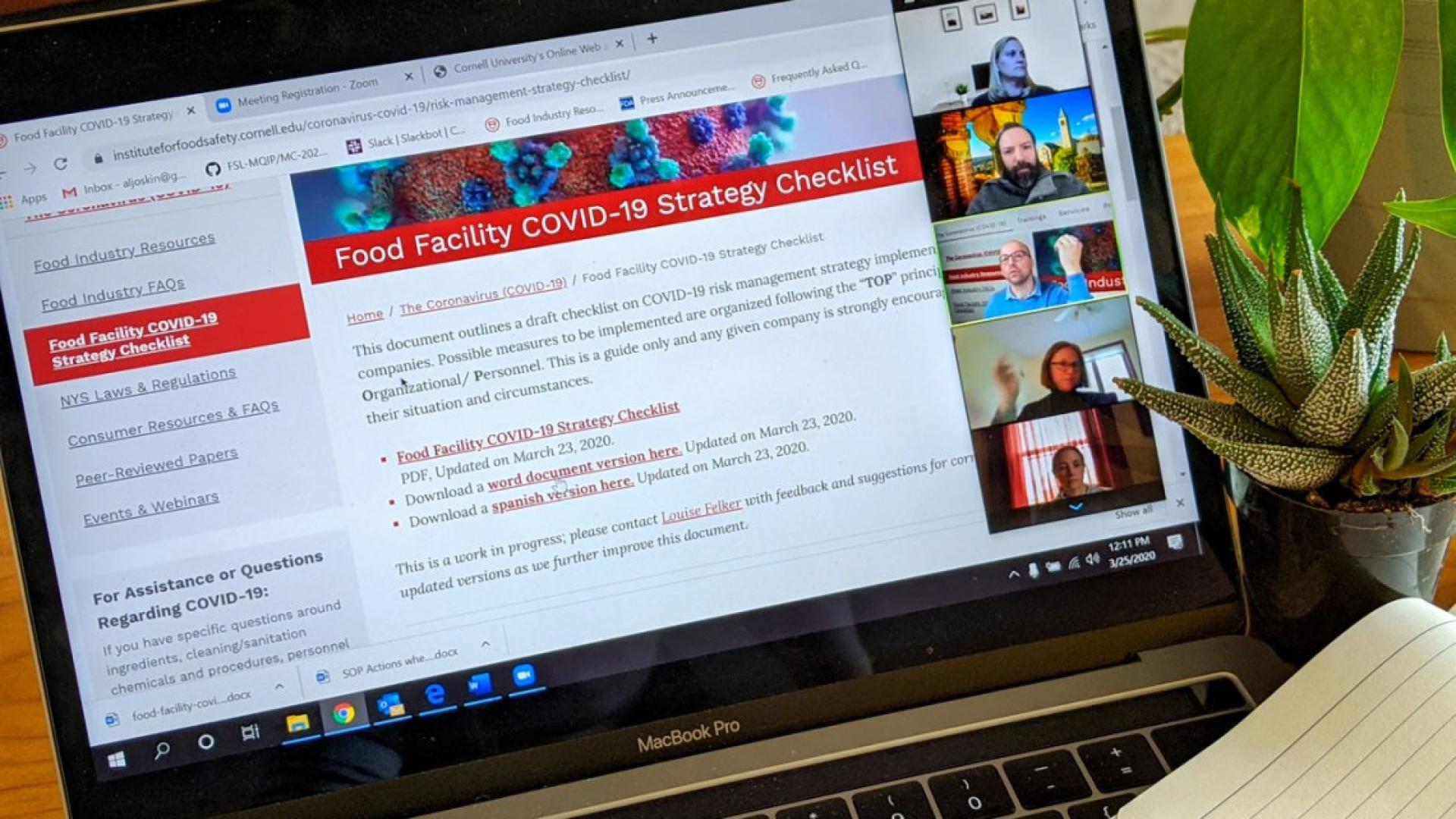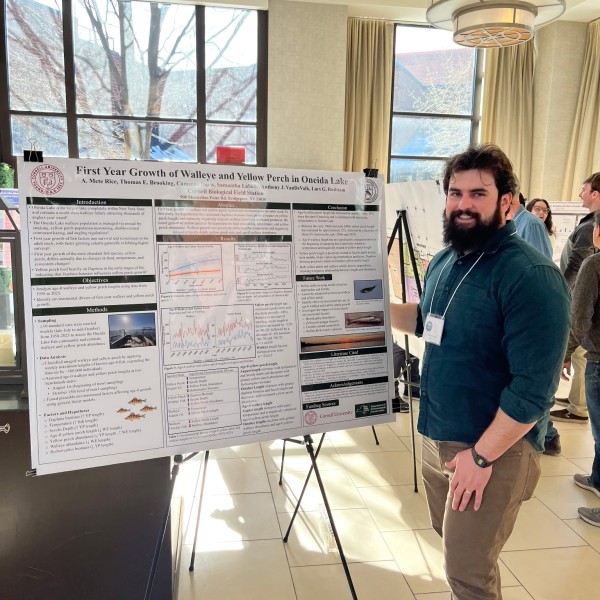“So far, most facilities have remained focused, making products and maintaining their staffing,” said Sam Alcaine, assistant professor in the Department of Food Science, in the College of Agriculture and Life Sciences. “But it’s early on, and people are worried.”
Alcaine and other members of the department – long a key resource for New York state food and agriculture businesses – want to help address those concerns. “We’re heavily involved with the industry here,” Alcaine said. “We understand how these companies work, for pretty much all types of food.”
In March, experts at the institute built a comprehensive website for both commercial processors and consumers. The site provides access to everything from downloadable food safety checklists to the latest changes to federal, state and local regulations that may impact plants’ processes and workforce.
To supplement the online resources, Cornell’s food safety experts decided to give industry members the opportunity to ask specific questions in real time. The food safety team has been offering two or three hourlong sessions per week since March 16, each drawing as many as 100 food industry professionals. Most participants are from food companies based in New York state, but several people have joined from other parts of the U.S. and from around the world, Alcaine said.
Participants can submit questions via chat box or voice them directly. Many concerns relate to keeping employees safe.
“The concern isn’t just physical health but also the mental stress of fearing exposure,” said Martin Wiedmann, the Gellert Family Professor in Food Safety. “Managers need to talk to employees about their fears and concerns.”
Physical safety practices are more straightforward for managers to implement, and the advice is similar to what the average citizen has already heard from organizations including the Centers for Disease Control and Prevention: Keep employees at least 6 feet apart; wash hands and disinfect surfaces frequently; and ask employees who show any signs of illness to stay home.
During the March 26 session, several managers expressed concerns about delivery drivers and other personnel traveling to New York City, which has the highest number of COVID-19 cases in the U.S. Wiedmann said extra caution is certainly warranted, but cutting off deliveries to the city would be an overreaction.
The group reiterated that current food industry cleaning techniques are more than enough to eradicate the virus from surfaces, and that transmission of COVID-19 through food is extremely unlikely. Recommendations to consumers include washing hands frequently, especially after handling groceries or delivered food, before preparing food, and before and after eating. Produce should be washed with cold water.
Alcaine has also been assuring participants that, in spite of general personal health risks related to COVID-19, the food industry is well-equipped to handle the challenging times ahead.
“We’ve already put into place systems and practices for proactive personal hygiene, cleaning and sanitation programs against threats like this,” he said. “We need to stay calm, remember that we’ve been preparing for this sort of event for a long time, and just make sure we’re keeping our eye on the ball.”
Details about upcoming Food Industry Virtual Office Hours are available online.
David H. Freedman is a freelance writer for the College of Agriculture and Life Sciences.
Header Image: Experts at the Institute for Food Safety at Cornell University hold virtual office hours for food industry professionals to ask questions related to COVID-19. Photo by Hillary Creedon/Cornell University





